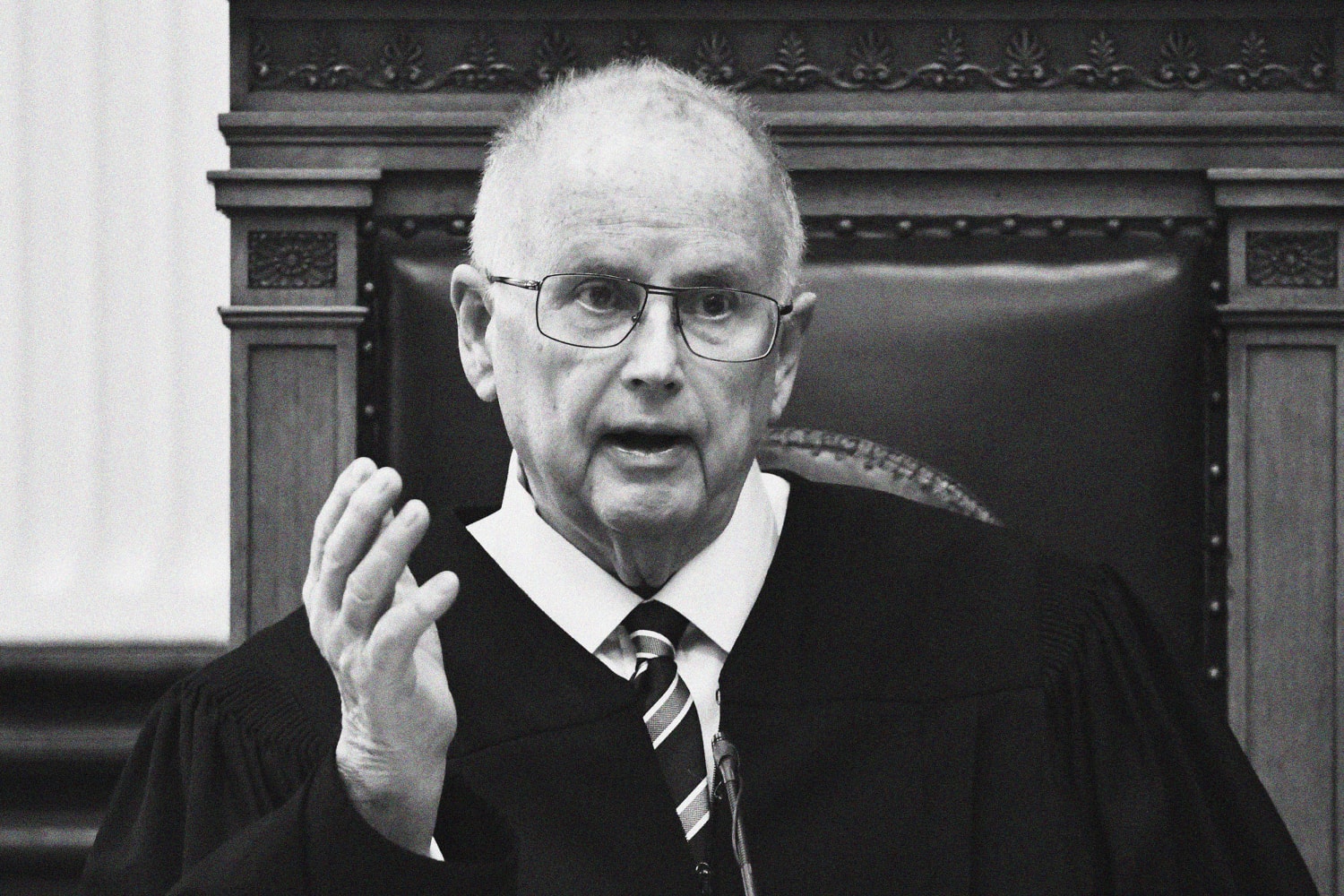
Kenosha County, Wisconsin, Circuit Judge Bruce Schroeder, who presided over the trial of Kyle Rittenhouse, caught a lot of shrapnel from observers over the course of the proceedings, mostly from those who felt Rittenhouse was guilty of a crime despite being found not guilty on all charges. Members of the Twitterati called him “clownish,” “dishonorable,” even a “blatant racist.”
Once elected, state judges often have the job for as long as they want it, or until they get caught taking bribes or accused of stealing cocaine from evidence in the cases before them.
Most of the criticism centered on Schroeder’s temperament and alleged bias against the state. And certainly there were moments in the trial when he read the riot act to the litigants — most often to one of the prosecutors. In one case, he yelled, “Don’t get brazen with me,” and in another he pointedly challenged the state’s honesty, responding, “I don’t believe you.”
But did these outbursts and other causes for criticism really render Schroeder “not fit” to sit on the bench, as the more than 14,000 people who have signed a Change.org petition have alleged? That, of course, depends on what you think should disqualify someone from wearing the black robes. If you think his mercurial personality means he can’t adjudicate cases fairly and dispassionately, that puts you out of step with the Wisconsin voters who have elected him time and time again. According to the Milwaukee Journal Sentinel, he is the longest-serving active circuit judge in the state.
It’s a poorly kept secret about electing judges: The process admits far more eccentricity to the bench than appointing judges does. Prosecutors and criminal defense attorneys who practice primarily in state courts where judges are elected probably heard Schroeder’s tirades and had a different take. They probably said: “So what? We have about seven judges wackier than that in our county courthouse alone.”
Americans have a knee-jerk preference for elections and the democratic process. Letting the people vote on who holds a crucial position like a judgeship seems in keeping with the tradition of a representative form of government. Letting politicians anoint judges to the bench seems like cronyism.
Paradoxically, appointing judges may be the better system. When executives like the president appoint judges, those executives are held accountable. In the federal system, in which all judges and justices are appointed, the Senate conducts hearings and decides whether to confirm the president’s appointees. Consequently, the federal judiciary is bristling with the impeccable résumés of Ivy League graduates, published academics and former Justice Department superstars. Presidents know their selections have to withstand scrutiny, so they (usually) send only the best candidates to face the Senate.
Meanwhile, in states that elect their judges — 39 include elections as part of their selection processes for at least one level of court — there are few barriers to entry beyond cozying up to a ward leader to gain local party acceptance and cobbling together a few signatures to get on the ballot. It doesn’t hurt to have a pot of money to waste on a local campaign, either. But academic credentials and things like, well, merit are far down the list of requirements. Indeed, in states like Pennsylvania, where I practice law, you can be a judge without even having attended law school.
Most of the commentators who felt Schroeder’s judicial temperament wasn’t appropriate probably haven’t spent a lot of time in a county courthouse. I can think of at least four judges whom I’ve been in front of in the Philadelphia criminal courthouse who are louder and more colorful than Schroeder. And that’s just one building.
Normally, however, the shenanigans of these more outspoken judges don’t happen on national television. They occur in sparsely populated courtrooms, places without reporters or packed galleries. (Sometimes the chief judge will even banish problematic judges to obscure courtrooms so they can’t get into as much trouble.)
In these forgotten state courtrooms, the only audiences for judges’ antics are usually junior district attorneys assigned to those courtrooms and a handful of bored defense attorneys waiting for their cases to get called. When the judge reams out the prosecutor or the public defender, there are no cameras or live feeds. Instead, the other lawyers in the room just raise their eyebrows or shrug their shoulders, as if to say: “Don’t worry about it — His Honor does this to everyone.”
And that same judge usually gets re-elected in a landslide. Especially in a single-party jurisdiction, where one party completely eclipses the other. In a major city, that’s generally the Democratic Party; in rural areas, it’s the GOP. Either way, once elected, state judges often have the job for as long as they want it or until they get caught taking bribes or accused of stealing cocaine from evidence in the cases before them.
It’s actually curious that we trust elected judges as much as we do. After all, society tends to distrust lawyers and politicians. Elected judges are both lawyers (most of the time) and politicians. Why would we expect elected judges to perform any differently than our elected representatives?
Elections may be essential to a democracy, but even our framers didn’t think elections were essential to the court system. They specifically charged the president with appointing Supreme Court justices in the Constitution, and that process has generally produced highly credentialed candidates.
Judicial elections aren’t necessarily a failed experiment, however. Plenty of good judges have been elected to the bench. But judicial elections are far more likely to result in judges who, like Schroeder, choose to openly read cookie catalogs on the bench during trials. It doesn’t necessarily mean he’s bad. It just means he’s the kind of character you get when citizens elect the people who will judge them.
Source: | This article originally belongs to Nbcnews.com










